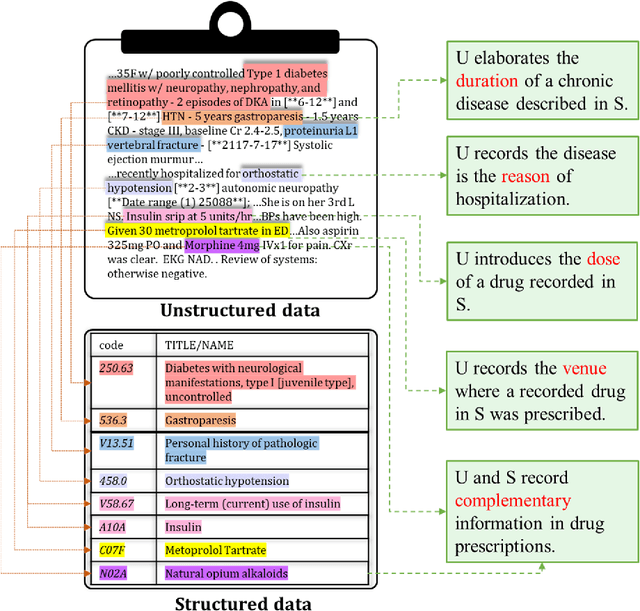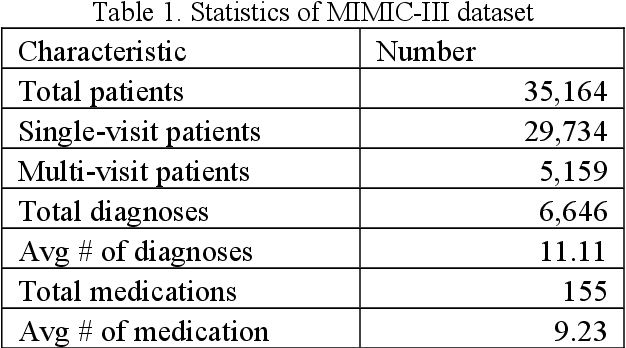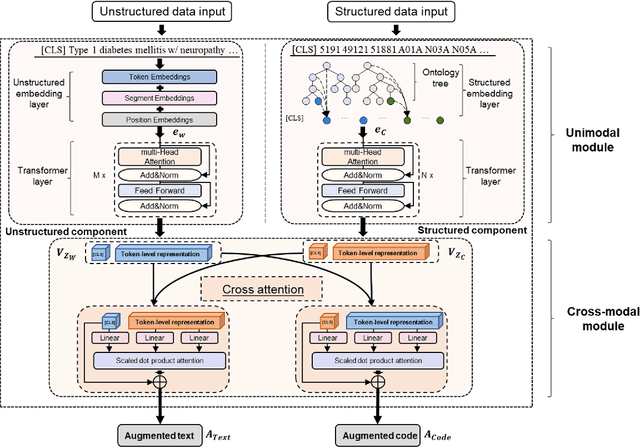Two heads are better than one: Enhancing medical representations by pre-training over structured and unstructured electronic health records
Paper and Code
Jan 25, 2022



The massive context of electronic health records (EHRs) has created enormous potentials for improving healthcare, among which structured (coded) data and unstructured (text) data are two important textual modalities. They do not exist in isolation and can complement each other in most real-life clinical scenarios. Most existing researches in medical informatics, however, either only focus on a particular modality or straightforwardly concatenate the information from different modalities, which ignore the interaction and information sharing between them. To address these issues, we proposed a unified deep learning-based medical pre-trained language model, named UMM-PLM, to automatically learn representative features from multimodal EHRs that consist of both structured data and unstructured data. Specifically, we first developed parallel unimodal information representation modules to capture the unimodal-specific characteristic, where unimodal representations were learned from each data source separately. A cross-modal module was further introduced to model the interactions between different modalities. We pre-trained the model on a large EHRs dataset containing both structured data and unstructured data and verified the effectiveness of the model on three downstream clinical tasks, i.e., medication recommendation, 30-day readmission and ICD coding through extensive experiments. The results demonstrate the power of UMM-PLM compared with benchmark methods and state-of-the-art baselines. Analyses show that UMM-PLM can effectively concern with multimodal textual information and has the potential to provide more comprehensive interpretations for clinical decision making.
 Add to Chrome
Add to Chrome Add to Firefox
Add to Firefox Add to Edge
Add to Edge